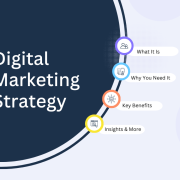Wringing Your Hands Over Google Withholding Keyword Data?
Tired of the constant changes Google’s been making lately? Yeah, sometimes I am, too. It seems like the search engine mogul has tweaked everything from its algorithms to ranking in-depth articles above other results over the past few months. But nothing has compared to its latest change.
A few years ago, Google encrypted searches for people who were signed into the site. Google recently announced that it would encrypt ALL searches, whether users are logged in or not. What that means for you is that you can no longer get all the data you once could about what keywords people use to find your website.
If you run a CRM software company, you’ll no longer know whether people are searching “small business CRM” or “CRM solutions for small business” in order to find you. And while this may not seem like a big deal, it is terrible news for businesses who develop content marketing and SEO strategies based on keyword research.
Knowing which keywords people search for to get to your site is — or at least, has been — instrumental in helping you drive more traffic to your site. If you know that people commonly search for “small business CRM,” then you can optimize your site and blog with that keyword phrase. But instead, you’re now in the dark without a flashlight.
The Impetus Behind the Change
There’s a lot of speculation about why Google decided to shield search data from our eyes. While the brand says it’s for privacy concerns (who wants just anyone to be able to see what you’re searching?), many think Google just wants to push businesses toward becoming AdWords customers, since customers still have access to keyword data.
But even Google hasn’t been flawless in its execution of this concept. As Danny Sullivan points out on his post on Search Engine Land, sensitive search info can still potentially be revealed in three ways:
- Search terms that get suggested by Google Instant autocomplete
- Search terms that Google provides to publishers through its Google Webmaster Central service
- Search terms that Google continues to transmit across the open web to its advertisers
So if privacy is Google’s reason, there are still a few holes that need mending.
My take? I’m not sure. I think as a society we’ve become more accustomed to our lack of privacy. After all, if our pictures from our wild girls’ night out are on the Internet for all to see, do we really care who sees our searches?
Will this new earthquake actually make businesses otherwise reluctant to sign up for Google’s pay-per-click advertising do so? I don’t see that happening. People who have relied on the power of content marketing will continue to do so until Google makes it a fruitless effort completely.
At any rate, whatever the reason for Google’s cloaking of keywords, it comes off as if the brand is trying to capitalize on what it always gave away for free. Ultimately, Google is in a better position to know how our users find us than we are. And that doesn’t sit well with us, does it?
Do We Really Need Keywords to Succeed?
While many marketing professionals are wallowing in their own grief, others say this shouldn’t affect what we do to drive traffic to our company sites. In a post called “Bye Bye SEO Data: Google and the Game Changer” by Shelly Kramer, the discussions are bubbling forth.
Blog reader Bernie Borges says this is the wake up call businesses need to stop relying on their marketing departments to do all the heavy lifting:
“This is an opportunity for companies to become a social business and get employees involved in producing and sharing content. Forget about measuring keyword KPIs. Measure business outcomes.”
I like his stance. Maybe we’ve become mired in measuring analytics and relying on hard data for so long that we’ve forgotten to trust our instincts. We know what our customers want, don’t we? Then we should continue to deliver it through useful, well-written content, even without Google’s help.
Andy Pitre, HubSpot Analytics Product Manager, says marketers are accustomed to working in the dark, so to speak, to reach customers:
“A big part of our jobs is to interpret that incomplete data and make the best decisions we can. Search is now one of those places where we only have access to a small part of the story. Our decision-making process in this area will have to adapt to these new circumstances, but it won’t stop us from reaching the customers who are searching for our products and services.”
Consider keyword data as training wheels. Yes, you’ve gotten accustomed to having them there to assist you. But it’s time to move forward without them.
Shake it Off and Move On
We can moan and groan about Google’s most recent head-rattling change, or we can wipe the tears away and figure out what to do next.
When looking at your Google Analytics dashboard, you will still see some data about the keywords that sends traffic to you if you are using AdWords and have the accounts linked. You should have at least some visibility into this, so make the most of it. You’ll also still be able to see what kinds of content are getting more traffic, time spent on the page, and metrics such as the bounce rate. Measure your own content, start figuring out what is engaging to visitors of your best stuff, and focus on creating more content like it.
If you have a Google AdWords account, you can still glean data on keywords, but not nearly what you used to be able to get. The Keyword Tool is no longer available, and has been replaced with the Keyword Planner, which has a few key differences you can read about here.
The new Planner tool has been described as “a new step-parent that is simply just harder to love.” Essentially, it’s a bit less friendly and less forthcoming with useful information than its predecessor. You don’t, however, have to actually purchase AdWords ads to use the tool, so if you have a Google login, play around with what’s there and see if it’s enough to aid you in your keyword research and planning.
Also, search for the keywords you think you should rank for. See what results appear. Do you fit in with those results? If so, optimize for them and include them in your web copy. You know your customers, so don’t ignore what your gut tells you about how customers find you.
One option is to keep track of where you fall in search results. On page 2? Optimize better for that keyword and see if you can get on to page 1. I suspect that a lot of work geared towards getting to page 1 of search results will subside. SEO is built on equal parts quality content and measurement of what works. If we can’t measure, we can’t be sure how well our efforts are working. Google’s move takes a big tool away from us on the measurement side. What’s left is our own experimentation and observation. This is a long and difficult road to take. Google’s algorithm and feature changes on the first page of results often confound efforts to consistently get better rankings.
A better approach may be taking a break from all the analyzing and simply write for humans. Write web copy that appeals to your target customer. Make it about them, not your company. Write useful blog content that they can get value from and will want to share with others. This move by Google may make social networks where your customers in industry associations are active more enticing. If I want to reach more interested buyers, is it easier for me to write for a search engine algorithm, or write for my potential customers directly on the sites they frequent? Sharing your content with judicious use of hashtags on Twitter, or on the right LinkedIn groups may pay off far more than keyword optimizing in the hopes of jumping onto page 1 of Google results.
Finally, Yahoo and Bing haven’t (yet) limited access to keyword data, so consider using them as tools in your strategy building. Likely, the same keywords will have the same popularity through Google, and since you’re writing for people who search on different engines to find you, the information you glean there certainly has value.
Take a fresh look at your approach to using keywords, and figure out what makes sense in piecing together the shrapnel that Google has left us to play with. Build a strategy centered around solid content and web pages focused on one concept or keyword at a time.
Creating value is really what this game is all about. But you didn’t need Google to tell you that.





